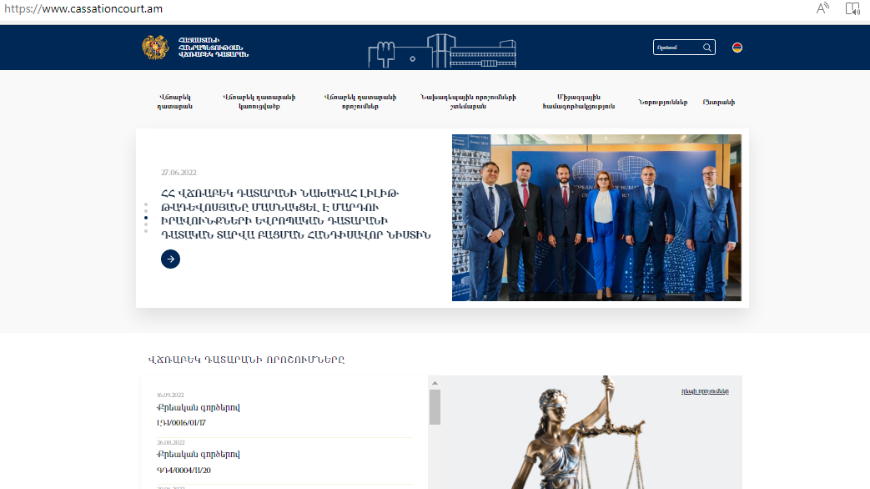A website of the Armenian Court of Cassation was developed with the support of the Council of Europe and is available online since November 2022.
The Council of Europe has been working closely with the Armenian judiciary to facilitate the effective implementation of European human rights standards, thus to ensure that these standards are rooted into the Armenian legal culture, education and jurisprudence. In this regard, the Court of Cassation as supreme court within the national jurisdiction, has a key role to play. For this reason, the support was provided to the Court of Cassation to strengthen its institutional capacity and professional capacity of judges to apply European human rights standards in a coherent manner, to increase a legal certainty in the Armenian judicial system.
The newly developed website aims at ensuring better access to decisions of the Court of Cassation and increasing public confidence and transparency of the court’s activities. The data on more than 1800 precedent decisions of the Court of Cassation, dated from 2008 to 2022, was systematised and uploaded on the website with corresponding search filters. With the launch of the website, all the decisions of the Cassation Court will be accessible online. The accessibility of the precedent decisions of the Cassation Court, is of crucial practical importance in terms of unified application of the judicial practice.
The website was developed in cooperation with the Court of Cassation of Armenia in the framework of the project “Supporting the criminal justice reform and harmonising the application of the European standards in Armenia" funded by the European Union and the Council of Europe and implemented by the Council of Europe in their Partnership for Good Governance II 2019-2022.





